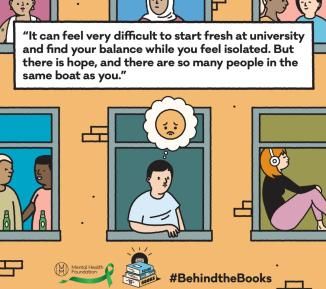This content mentions loneliness or isolation, which some people may find triggering.
Sheneika lived at home while she completed her degree. This came with difficulties when trying to be part of the wider university community. Here are her tips on how to cope as a commuting student.
As a commuting student, it can be easy to feel isolated and shut off from campus/ community life. The start times of student and society events can make participation feel unachievable. This can lessen the university experience and isolate us from the benefits of extracurricular experiences.
Experiences such as networking, stress relief, personal growth, cultural exposure and leadership opportunities can create long lasting friendships. Throughout my degree I was determined to have these experiences despite commuting for the three years of my degree (minus the Covid year).

These are the steps I took to integrate myself in university life:
- Locate a commuter group chat/ service. This can help you be part of a community with people in your situation, stay up to date with travel issues such as strikes, traffic and diversions as well as find friends from a variety of backgrounds. You’ll make friends in the most unlikely of ways. If you’re educational setting doesn’t have a service, you could create a group chat!
- Use breaks wisely. Use the time between lectures, seminars and workshops to socialise with other students and explore campus facilities.
- Be flexible with the days you can stay later on campus. Plan as many activities for that day as possible to feel more connected. Wednesdays or Thursdays are usually ‘uni nights’ where most activities happen.
- Engage with faculty. Attend your lecturer's office hours and establish relationships with your professors. This can lead to valuable academic guidance and potential research or internship opportunities.
- Attend events. There are so many ways to get involved! Workshops, campus events, daytime society and sport events, clubs, organisations and student groups. Guest lectures, campus events and workshops can be a great way to engage with other students and build a sense of community. There's always something happening on a university campus!
If you find yourself struggling with your mental health at university, the best advice we can give is to tell someone.
Related content
Behind the Books campaign

Shannon's story: the power of mentorship in feeling connected to university

Morgan's story: My experience with shared housing and feelings of isolation at university


Read stories about people like you

Help us to help you
Make a donation
If you found Sheneika's story helpful and you would like to make a contribution to improving mental health for future generations, please consider a donation.
Donate now